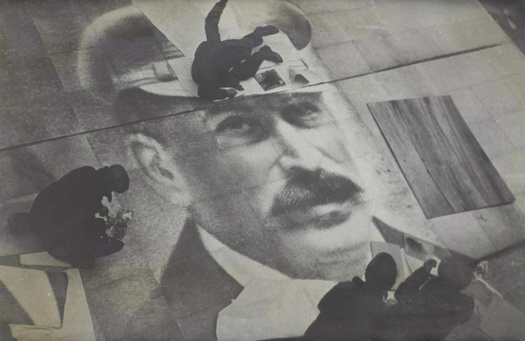
‘Bolshevik politics was warfare’ Historian Ronald Grigor Suny on Stalin’s rise and Stalinism’s legacy
Мы рассказываем честно не только про войну. Скачайте приложение.
March 5 marks 70 years since Joseph Stalin died. As the leader of the USSR from 1924 to his death in 1953, Stalin established a totalitarian regime, provoked mass starvation, engineered the Great Terror, and led the Soviet Union to victory in the Second World War. Meduza spoke to Professor Ronald Grigor Suny, a historian and political scientist at the University of Michigan, and author of several books about Stalin and Stalinism, about Stalin’s politics and his rise to power in the early years of the USSR. The interview has been edited for length and clarity.
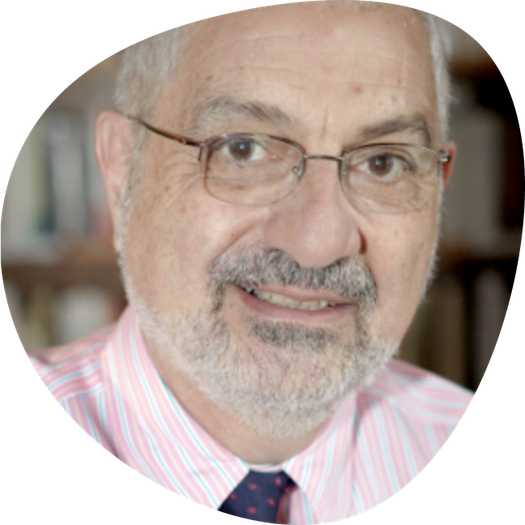
Who was Stalin before the 1917 revolution?
Stalin was born a very poor person, and he developed in time into what I would call an outlaw. He began as a relatively religious person, as a young man. He was a romantic poet. He wrote poems in Georgian that were considered quite good. He went to seminary following his mother's instructions and desires.
And then in that seminary, which produced, in some ways, more revolutionaries than priests, he became alienated from the tsarist regime and from the church and imbibed the local dissident ideology, which was a kind of Marxism. Very strangely, in Georgia, instead of nationalism being the dominant appeal to young people in the 1890s, there was this very powerful and influential Marxist movement led by a guy named Noe Žordania. And Stalin became part of that movement.
But as a young man, he was quite militant. He had his own desires. He was a rough guy, sort of a street fighter, and eventually he gravitated toward the more militant wing of social democracy in tsarist Russia, that is Bolshevism. There were aspects of his revolutionary experience before 1917 that already pre-visioned the kind of person he would be. He was a manipulator, he was pragmatic, he was Machiavellian, he did anything to further the cause. And he identified himself with that cause. So there was always this strange combination of the need to create a revolution and [the need] to promote himself, Stalin.
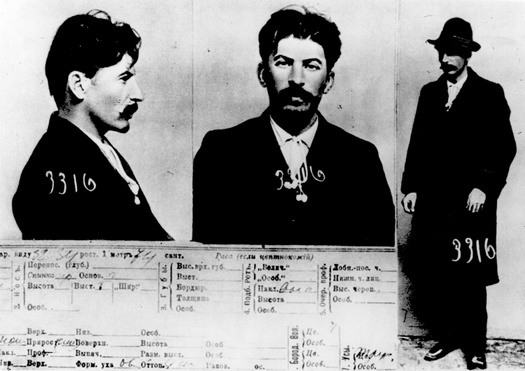
Could his comrades have guessed back then that he would advance so far in the ranks of the party?
Many historians who don't follow his early biography [closely] have underestimated Stalin. They see him as a minor leader, someone from the provinces, not very important. This is, I think, incorrect. When you look within the context in which he was operating, in what was called the Caucasus, Transcaucasia, or we now call it the South Caucasus, you see he was a leader there. In the Bolshevik faction, he was a major player. And we have letters and statements by local Bolsheviks at the time and by Social Democrats of the Menshevik variety, all of which note several traits: He's a good organizer, he's a good propagandist, he wrote influential pieces on anarchism and Marxism, and that he was also a manipulator, maybe not to be trusted. So he was a kind of outlaw figure, but also recognized as a potential leader.
[But] I agree that, if you take the whole Bolshevik party, he was a minor leader. Lenin promoted him and recognized his skills. Lenin was looking for Social Democrats who had come from the lower classes, not primarily from the intelligentsia, but who also were intellectual in some ways — this combination of the worker and the intelligentsia. And Stalin perfectly personified that. But he was not a major second-to-Lenin figure. The second-to-Lenin figures were people whom [Stalin] would murder — Zinoviev, Kamenev, Trotsky, Bukharin.
Who were the second-to-Lenin figures?
Grigory Zinoviev was a so-called Old Bolshevik, a close comrade of Lenin’s from the early days of the revolution.
Lev Kamenev was a revolutionary who participated in the failed 1905 revolution and an associate of Lenin. He argued with Lenin about the 1917 revolution, but nonetheless remained in a position of power in the early Soviet period. With Zinoviev and Stalin, he formed a troika against Trotsky.
Lev Trotsky, revolutionary and political theorist, initially sided with the Mensheviks. He nonetheless held powerful positions in Soviet government until after Lenin’s death, when Stalin, Zinoviev, and Kamenev forced him out.
Nikolai Bukharin was close to Lenin and Trotsky before the revolution, when the when the three worked together from exile. After the revolution, he became the editor of the newspaper Pravda. He helped Stalin oust Trotsky, Zinoviev, and Kamenev from the party, but later split with Stalin over collectivization. He was executed after a show trial in 1938.
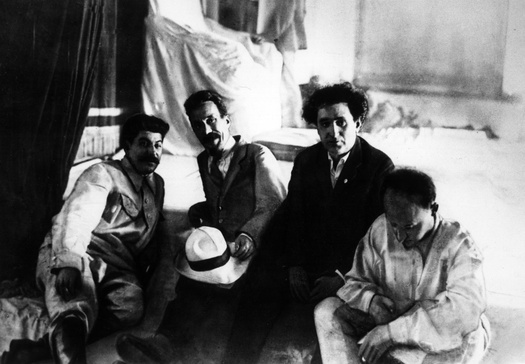
You partially answered this question already, but was there anything in Stalin's early party career that suggested that he would become a tyrant?
As a historian, I take context very seriously. There are aspects of Stalin’s early career that you could see [as likely to develop] in certain ways later, when he has full power. In his earlier career, we find that he’s very much interested in party unity. He even has conflicts with Lenin, who’s much more divisive. Lenin wants to get rid of deviationists, those he doesn’t think are the ones following the correct position. And Stalin is more inclusive, ironically, in wanting to bring people into the fold. Now, in the 1930s, he was also interested in party unity. And there’s a lot of talk about unification of the party and getting rid of oppositionists, deviationists, saboteurs, et cetera. But in the 1930s, with absolute power and with control of the police and the NKVD, he now can put them on trial or simply arrest them, exile them, or have them executed.
What was Stalin's role during the 1917 revolution?
At the beginning of 1917, Stalin was in a rather disadvantaged position. He was in exile in the Krasnoyarsk area, far from the center of power. And then suddenly the revolution broke out in February 1917, and he quickly returned to St. Petersburg, Petrograd at the time. And there he immediately became one of the major leaders — Lenin was not yet in Russia, he was in Switzerland — of the Bolshevik faction of the Russian Social Democratic Party. And interestingly enough, Stalin was relatively moderate when he first returned to Petrograd, and even supported the provisional government that had taken power after the overthrow of the Tsar Nicholas II. Lenin was appalled by this moderation. And Lenin returned in April 1917 to Petrograd and he immediately castigated his followers about it. Stalin very quickly made a shift toward Lenin and became one of Lenin's most vocal and dedicated followers at that point.
When Lenin had to flee from Petrograd after the so-called July Days and go into hiding in Finland, Stalin emerged as one of the major figures of Bolshevism. Trotsky was in jail, Zinoviev was with Lenin in exile, and Kamenev was in jail for a while. By October [1917], the Bolsheviks came to power, and Lenin made Stalin the Commissar of Nationalities.
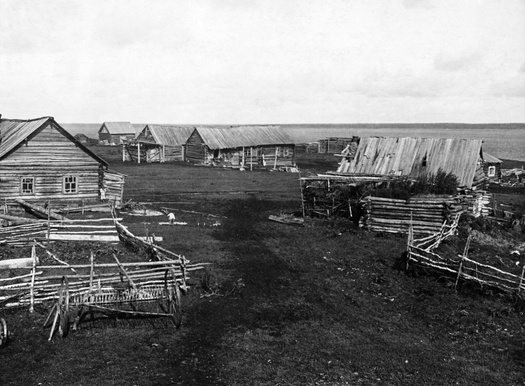
Moving on to 1918 and the beginning of the Civil War: what was Stalin's role during this time?
During the Civil War, Stalin is everywhere at once. He is at the front and in Tsaritsyn. He is competing with Trotsky, who is the head of the expanding Red Army that will ultimately win the Civil War. He’s Commissar of Nationalities, though he’s not paying much attention at the time to that particular office. And he’s not only fighting at the front occasionally, but he’s also involved in the formation of the whole concept of a new state of the Soviet Union. And he’s very close to Lenin in that period in trying to decide how to build this new state.
Basically, Stalin and Lenin are the architects of what can be called Soviet nationality policy. Originally, Marxists, of course, are generally opposed to nationalism. They recognize that at a certain stage of history, the bourgeois capitalist stage, there is also a political formation — the nation state. And they recognize this as part of the unfolding of history. But Marxists in general believe that class formations and class struggle ought to be much stronger than unified national struggles.
And yet Leninism is a very pragmatic ideology. The Bolsheviks, and Lenin and Stalin in particular, recognize that nationalism is developing during World War I. As the Russian Empire fell apart, different nationalities set up their own autonomies or even states. And so in order to deal with this real problem of disintegration, Lenin and Stalin developed a nationality policy that recognized the need for a new federated state. And here the dispute between Lenin and Stalin emerged. Lenin was willing to give more self-rule, more autonomy to the other republics. And Stalin wanted a far more centralized state. He preferred to have those other republics brought into the RSFSR [the Russian Soviet Federative Socialist Republic], and Lenin proposed a larger framework called the USSR. And ultimately Lenin’s view would prevail.
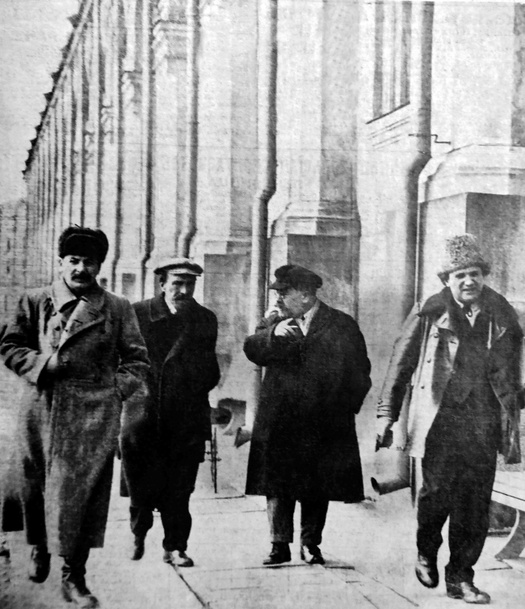
One of the most important things that happens during the Civil War is that Stalin becomes general secretary of the party. This is a minor office, it’s considered a kind of administrative office. But this office of general secretary, in fact, becomes [Stalin’s] instrument to secure power within the party. And Stalin proves to be a great organizer, a great bureaucrat, and begins to build up cadre of supporters within the party. This office gives him appointment powers — he can send members of the party here and there. And it becomes a center of power that Lenin also will recognize later. And Lenin will even try to remove Stalin from that office, but it’s too late in his life. Lenin is ill by 1923-24 and is unable to carry out that assignment.
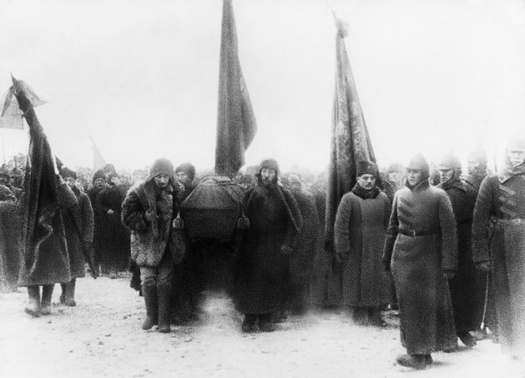
Was Stalin's rise to power, during the first couple of years of the 1920s, a series of coincidences? Or was it inevitable that a person like him would become a leader of this new relatively young state?
I don't believe that in history there is inevitability. There are possibilities, there are opportunities, and there are potentialities, but not inevitabilities. Stalin was one of many major [political] figures at the end of Lenin's life in 1923 and 1924. The last year of Lenin's life and the first year after his death [saw] the formation of a triumvirate of three people — Stalin, Zinoviev, and Kamenev — who used their unique position to marginalize Trotsky. [Trotsky] was a huge figure, a charismatic orator, a person of great power and influence, but basically a danger to this group of close Leninist comrades.
I'll explain how Stalin ultimately emerged as the major leader, but it's not inevitable. And at first it seemed quite improbable. First of all, Lenin had been a wartime leader during the Civil War, and he could be quite ruthless. Lenin believed that politics is a kind of warfare — not liberal democratic parliamentary politics, compromise, negotiation, give and take. Bolshevik politics was warfare. It destroyed the enemy. And Lenin was good at that, and won in 1917, and won again in the Civil War. But by March 1921, Lenin came to a new conclusion: “We're going to hold on to power. But we Bolsheviks live in a sea of peasants, and if the peasants unify and rise up, we're finished. Therefore, we need a new policy.” And it was called the New Economic Policy, NEP.
In some ways, NEP is what you can call an armistice. It is an attempt to reconcile this regime of urban intellectuals and revolutionaries, based on a small and dissolving working class in the cities, with the great mass of the population of the country. 80 percent of Russia was peasants, living in villages. This was the worst place you can imagine building socialism of a Marxist type, which is supposed to be built on developed capitalism and self-rule of the proletariat. So [NEP] is going to do something completely unexpected in normal Marxist theory. [It gave] the peasants the right to control their own economy, their agriculture, the major economic resource of the country. That compromise would last until 1928. Stalin supported this. And not only that, but [he] believed that this was a gradualist approach, which was basically state capitalism [moving] toward an eventual transition to socialism. He believed that you could build socialism in the Soviet Union, socialism in one country, without necessarily waiting for an international proletarian revolution abroad. So Stalin again was a moderate force, against the left and the left opposition, which was led usually by Trotsky, who wanted a more internationalist policy and more rapid industrialization.
Why didn’t Stalin immediately attempt to build a totalitarian state when he came to power in the second half of the 1920s?
As I mentioned, Stalin was very pragmatic. NEP was working right up to around 1927 or 1928. The country was restoring the economy after the war, developing slowly. The people were getting wealthier. But then, in 1928, NEP began to fail. Industry was growing too slowly [for the state to be able] to give goods to the peasants in exchange for the grain. So the peasants, being rational producers, withheld the grain from the state or sold it to private traders. And Stalin, suddenly moving quite radically to the left, decided, “We’re going to go out and seize the grain from the peasants.” And he eventually pushed for collectivization of agriculture [as a way] to bring grain from the countryside into the cities, and into the army, and to sell abroad.
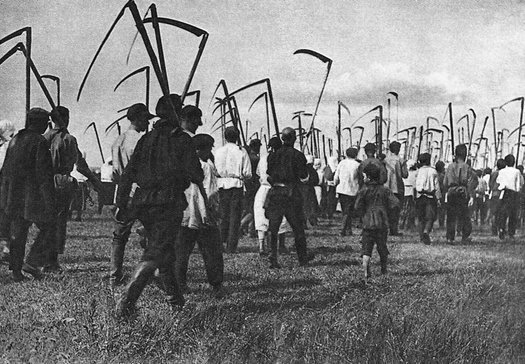
Was that move really pragmatic, given that it caused massive starvation during the first years of the 1930s?
Collectivization, in the late 1920s and early 1930s, were part of an effort [by] Stalin and his closest supporters to break the back of peasant resistance. And in many ways, collectivization was a war against the peasants — a war of the state, the police, the cities, the workers, and the party against the majority of the population. Collectivization, which would be a disaster, which would reduce agricultural output, which would reduce the productivity of the peasantry in the villages, which would be a fundamental flaw in the Soviet system from the 1930s [through to] the collapse of the Soviet Union, this policy was not only economic — it was political.
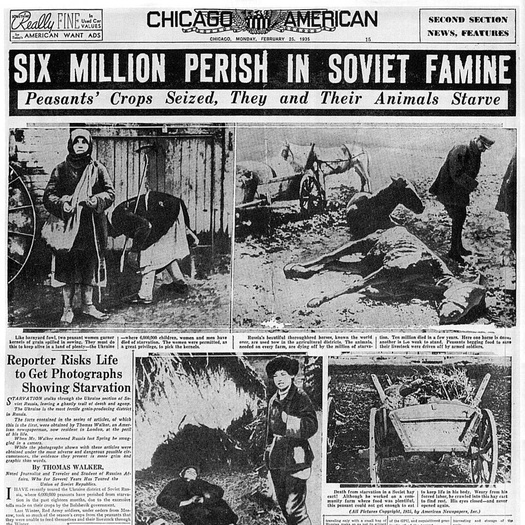
Did Stalin ever take seriously the idea of radical world revolution espoused by people like Trotsky?
Stalin was the least internationalist of the Bolsheviks. That corresponds to my reading of Stalin as what we call an étatist, a statist. He’s most interested in preserving the power of the Soviet Union, the existence of the Soviet state, and would use any means needed to achieve that. And international revolution becomes less and less possible, because after 1920, there’s a very important stabilization of Western capitalism and liberalism and these democratic regimes in Europe and the United States that preclude the possibility of international revolution. Lenin’s Comintern, [which was] formed in 1919 and disbanded by Stalin in 1943, never once in all those years ever succeeded in making a revolution anywhere.
Let's turn to famine and the Holodomor in Ukraine. What was the main cause of the Holodomor? Why did the Ukrainian SSR suffer most drastically from this famine?
There are two interpretations of the Holodomor and the famine in Ukraine. One you find among Ukrainian scholars, [as well as] other scholars in the West: the Holodomor was a deliberate attempt by Stalin to destroy Ukraine and Ukrainians. [However], scholars like myself don't see [the Holodomor] as a genocide. I do not argue that it was an ethnocide that is directed specifically against Ukrainians as Ukrainians, but it was a misconceived, brutal policy that was part of the collectivization effort. Stalin and the regime didn't want Ukrainians to die and to cease producing grain. What they wanted was [for] them to produce grain, [so that the state] could take the grain. But what the regime did was take too much grain, including seed grain. And so poor harvests, combined with disastrous policies and brutal neglect, combined to create this death famine or Holodomor. It was incompetence and brutality. You could argue it was a kind of imperial policy, like many of Stalin's policies. The imperial center simply disregarded its peripheries and used the most vicious means. Note, however, that the famine also occurred in the North Caucasus, where there were lots of Ukrainians, in the Volga region, which was Russian, and in Kazakhstan, where the forced sedentarization of nomadic Kazakhs produced more deaths per capita than even in Ukraine. So this is a colossal period of failure, of incompetence, of brutality, that is very much consistent with Stalin's own imperial policies.
Was the Holodomor Stalin’s fault?
I would blame it on Stalin. Famine is a failure of state policy. It means the regime has not taken the necessary measures to prevent massive starvation. Not that there weren't natural causes for reduced productivity and so forth. But the chaos of collectivization itself, and the brutal policies of extracting the grain and taking it from Ukrainians and other peasants, also contributed.
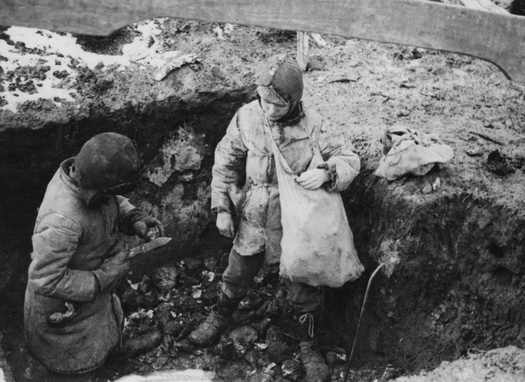
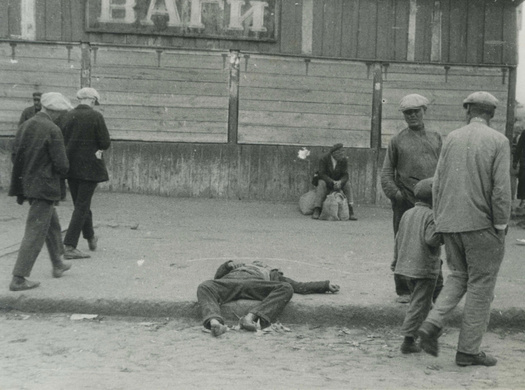
What do we know about Stalin's personal attitude towards Ukraine?
I think that from a lot of little bits of evidence here and there, one can say that he looked down on Ukrainians. He himself was Georgian, but he so closely identified with Russia that in many ways he considered himself a kind of supranational Russian. And as a leader of the Soviet state, and with his Russophilic view of himself, he looked down on Ukraine. If there’s any attitude that I’ve met in my own personal experience of living in the Soviet Union and traveling through Russia, it is an extraordinary condescension of ordinary Russians toward Ukrainians. “Oh, Ukrainian culture? Oh, that’s an oxymoron, that doesn’t exist. What are you talking about? You’re part of Great Russia.” And you see this in Putin’s own reading: “Oh, we’re one people, right? We’re made up of Ukrainians, Belarusians, and Russians.” This is an imperial trope. This is an imperial way of understanding.
Can we call this kind of policy towards Ukraine and other national republics during the 1930s imperialist?
The Soviet Union is a kind of empire. It's a pseudo-federalist multinational state, but it has serious imperial features. All sovereignty in the Soviet Union belongs to Moscow. The republics have certain national rights, but not sovereignty, not supreme dominance of their own state. And that lasted right up until the Gorbachev period. At the same time, there was a Sovietization policy — the creation not only of national cultures, but also at the same time, and in some ways in contradiction to this, the creation of a Soviet culture, which was heavily Russian. So an Armenian or a Ukrainian or a Kazakh was supposed to [identify] with their own people, but at the same time, [have] a kind of patriotism for the Soviet Union. You could see how those things might be contradictory. In fact, they often work together. If you think of World War II, people fought and died for the Soviet Union. They would say, “For the homeland and for Stalin,” and they would die with that claim. So we can't underestimate the success of this Soviet project in creating dual, combined identities.
To what extent was Stalin's USSR during the 30s a reincarnation of the Russian Empire?
There are historians who argue that Stalin was a new tsar, that this was a new autocracy, that collectivization was a second serfdom, all of these kinds of things. I don’t find [such analogies] so useful. I think what Stalin was doing was creating a new kind of state. It was an imperial state, but it was quite different. It was now dominated by the Communist Party, by the nomenklatura. Some would say, “Okay, that’s a new nobility, right?” But these are not inherited positions. I would argue that [the USSR] is an imperial state, an internal empire, with very peculiar [elements], like the development of these national units. At the same time, let’s not forget that Stalin also created an external empire. After World War II, he took over Eastern Europe and had a whole slew of satellite states, which he didn’t incorporate into the Soviet Union.
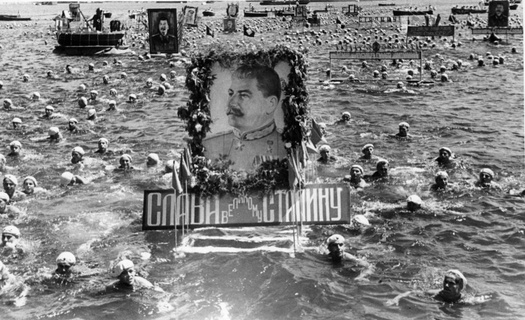
What is the attitude toward Stalin in contemporary Georgia and the other countries of the South Caucasus?
If you go to Armenia or Azerbaijan, you will not find many people who love Stalin. They only know the horrors that Stalin brought on those countries, destroying their local intelligentsias, moving people to Siberia or Kazakhstan. But in Georgia, Stalin is a national hero. Stalin was the most famous and powerful Georgian in history. By the time Stalin died, he was probably the most powerful man in the world. So you can understand why Georgians might have a nostalgia for that achievement. At the same time, Georgia suffered. Its intelligentsia was also brutalized and murdered. There’s a debate in Georgia between those who don’t know much about what Stalin did to Georgia, and therefore continue to revere him, and those who are better informed.
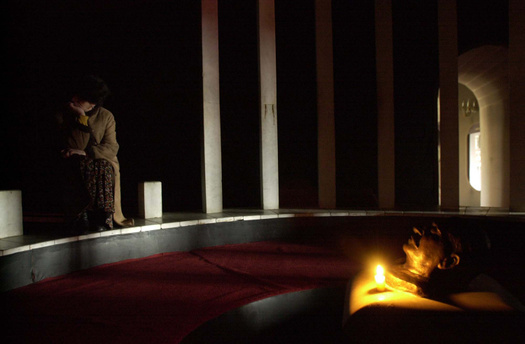
What was Stalin's own relationship with his Georgian identity?
There's a private Stalin and a public Stalin, and the private Stalin did remain, in many ways, Georgian. He would have a Georgian chef, for instance. He trusted Georgians in certain ways, looked toward Georgians to help and protect him. His public persona is Soviet, a Russified Soviet, even though he always had a heavy Georgian accent. And he identified primarily with Russia as a great state and the Soviet Union as the embodiment of a great Russian state.
How do you rate Stalin as a political thinker?
Whatever original ideas Stalin had, they were Lenin's ideas or Marxist ideas — things he read and believed, and then interpreted in his own way. He took Marxism and Leninism as his framework, as his sociology, as his understanding of history. He was an intellectual. He read carefully, he annotated books, but always within this general framework. But then he interpreted that framework and narrowed that framework so that the more humanistic or dialectical or aspects of Marxism were eliminated.
What were the main reasons for starting the Great Terror, from Stalin's point of view?
You’re asking the most difficult question [about] one of the great mysteries of Soviet history. This is something that we don’t have a good answer to. And I’ve tried, myself, to think carefully, because the Great Purges are an irrational act. Why would a state on the eve of a war, that they knew was coming, destroy its intellectuals and its army commanders? Why would it weaken itself? Why would a great state make itself stupid when it most needed to be intelligent?
To answer your question — there were two things. One, Stalin's own belief that he himself represented the best guarantee for creating the kind of socialist state that he envisioned. It's not a state that I would call socialist, but that's what he envisioned as socialism. And two, he still was pushing, as he had [for his whole] career, for party unity. But now party unity would be achieved not by persuasion, not by agreement, not by discussion, as was true in the Leninist times, but by brutal force and by mass murder. And so he carried out this purge, weakened the Soviet Union, and left it a ruined landscape on the eve of the war.
So maybe Stalin wasn’t that pragmatic after all?
Pragmatic only in the sense that if his goal was to create a kind of brutalized unity, a kind of unity where there’s no more dissent, then it was pragmatic. But its effects were exactly the opposite. It actually weakened the Soviet Union seriously, and made the victory in the war far more difficult.
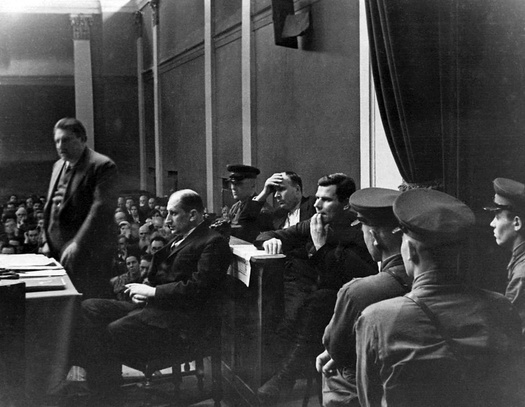
Why was it necessary for Stalin to proceed to large scale terror? Why couldn’t he just have conducted a purge within party ranks?
There’s a kind of multiplier effect in the great purges. So you start by arresting a few people, and [the authorities] tortured people, people gave false confessions, and then more people were arrested. And more and more, the NKVD was fabricating cases, making up conspiracies. And this fed into this atmosphere of suspicion, in which everyone was supposed to denounce everyone else. This steamroller of accusations and denunciations simply spiraled until finally, Stalin simply said, “Stop it.”
What were the results of the great purge politically and socially?
Politically, if you eliminate a whole generation of old Bolsheviks and managers and intellectuals, you need to have them replaced. And so what you have is new people coming up. A new generation came up, very young people, like Andrey Gromyko or Leonid Brezhnev. They came to power [when they were] in their 30s or younger, in the late Stalin period, to replace all of those people who had been killed. The Soviet leadership right up to Gorbachev were people who had been pushed up in this Stalinist period.
A second great social change was the complete dampening of initiative, of taking responsibility for your own actions, of trying to create something new. People became obedient. [But] when [World War II] came, suddenly one can see that ordinary Soviet citizens became initiators. In other words, what the West called a totalitarian regime was never fully achieved. That doesn’t mean that Stalin did not have totalitarian aims to control as much of the system and the society, and the knowledge of that society, as possible. But it never was ever achieved in full.
We’re skipping the whole decade of the 1940s because that could be an entire interview of its own. Let's talk about Stalin’s death. How did he die?
Very painfully. On the night of March 4th-5th, 1953, he and his friends had been carousing and having drinks in his dacha at Kuntsevo. And he seemed in a very good mood. They all left early in the morning, and he went into his study and lay down on the couch. And at some point during that night, he had a stroke, a massive stroke. He lingered through the night. The next morning, he didn't emerge from his study. [His] guards were fearful. They called members of the Presidium [of the Supreme Soviet], and they came. And Beria apparently said, “He's asleep, don't bother him.” The people who arrived did not call a doctor right away. So Stalin was dying at that time. And eventually he did, in fact, expire. That's the simple story. Even before Stalin was completely dead, the most powerful figures in the Communist Party were sitting together and organizing the post-Stalin regime.
What was the reaction of ordinary Soviet citizens?
Ordinary Soviet citizens were shocked — a kind of god had been removed. There were massive movements of people through the streets of Moscow that led to crushes of people and deaths as they tried to see Stalin’s body. It was a disorienting event because the whole system depended on Stalin.
Why were ordinary citizens so distraught? Had people simply forgotten about the Great Terror?
Stalin stayed in power not by terror alone. The terror was important, it reinforced his power, and it kept people in place. But you have to remember, along with that, [there] was a huge campaign of propaganda, of celebration, of beautiful posters trying to persuade people that this was the march forward into a beautiful future. People were much more affected by that propaganda campaign than one might think. And don't forget this [aspect]: we didn't talk particularly about the Second World War, but the Second World War was the great triumph of Stalin. He identified with the victory, which of course was carried out by ordinary Soviet citizens, 27 million of whom died during the war and in the struggle against fascism. Basically, the Soviets fought three-quarters of the Nazi forces and took Berlin. The Soviets ended the Holocaust by liberating Auschwitz and the camps in Poland. People don't give any credit to this at all.
Why did it take several years after Stalin’s death for Soviet leaders to start enacting real, systemic change?
One of the most interesting things when you look at the death of Stalin and the period right after [his death] is how frightened and confused the top Soviet leaders were. They didn’t know what was going to happen. It took some time for the consolidation of this new regime under Nikita Khrushchev. And by 1956, Khrushchev made an extraordinary, bold decision to launch an attack against Stalinism and the legacy of Stalin. And it almost destroyed the regime. It certainly made the regime less strong in the short run. There was dissent within the Soviet Union. There were revolts in Eastern Europe, most importantly in Hungary, but also in Poland. So the Khrushchev Congress took time before they could come to the idea that they ought to launch this attack on the worst excesses of Stalinism and try to return to what they imagined was the original Leninist project. They never went back to the original Leninist project, which, as we’ve described, was NEP. That would not occur until Gorbachev, who would try to get back to Leninism and something like a state capitalist regime, though it was late, he was weak, he didn’t enforce his policies well, he divided the Communist Party, and the regime collapsed.
You know, the way I look at Soviet history, I don't see that the Soviet regime descended from reading Karl Marx. I see the Soviet regime as a series of improvisations of trying to get the regime correct. We have war communism. We have NEP. We have Stalinism. We have the reforms of Khrushchev. We have the stagnation of Brezhnev. And finally, we have the radical revolutionary reforms of Gorbachev that brought the regime down. So they never got it right. And they never built something that I would call socialism. But they did modernize a country, from 80 percent peasants to 80 percent literate urban dwellers. And by the way, the Soviet population by 1991 didn't need the empire anymore. The empire had done its job.
Meduza
(1) Social Democrats
The Russian Social Democrat Labor Party formed in the late tsarist era in order to unite the various revolutionary socialist movements that were gaining popularity in the Russian Empire at the time. It would eventually split into the Bolshevik (majority) and Menshevik (minority) factions. Both were left-wing revolutionary groups, though the Mensheviks were at times more moderate than the Bolsheviks. The Bolsheviks, headed by Lenin, would seize power in the October Revolution of 1917.
(2) NKVD
The NKVD, the People’s Commissariat for Internal Affairs, was the Soviet internal ministry. From around 1930 until the end of World War II, the NKVD managed public order in the Soviet Union and also functioned as the secret police, security, and intelligence service. The NKVD carried out the Great Terror’s executions and deportations.
(3) July Days
A period of social turbulence in July 1917. The Russian provisional government cracked down on Bolsheviks during the period, and many Bolshevik leaders fled the country.
(4) Tsaritsyn
The city was known after 1925 as Stalingrad, and today is known as Volgograd.
(5) Comintern
The Communist International, or Comintern, was a Soviet-led international organization that organized communist parties in states outside the Soviet Union and advocated world communism.
(6) Lavrenty Beria
Beria was a Soviet politician, most well-known for being the head of the NKVD under Stalin.